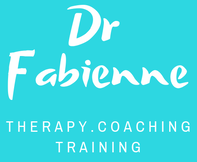Call NOW ON 0456 903 628 TO ARRANGE A FREE DISCOVERY CONSULTATION
FIND OUT HOW WE CAN HELP YOU TO ACHIEVE THE RESULTS YOU ARE AFTER
FIND OUT HOW WE CAN HELP YOU TO ACHIEVE THE RESULTS YOU ARE AFTER
LEARN TO SLEEP WELL AGAIN- it's easier than you think
|
Want to sleep well again? Read on
If you are struggling to sleep well, by now, you know that lack of sleep has a huge impact on your overall health and wellbeing. It does not just affect your energy levels and your moods, making you exhausted grumpy and irritable in the short term. In the medium term, it can seriously impair your ability to think and reason clearly, to concentrate and remember things, to make clear decisions and solve problems efficiently. It has been shown to reduce your sex drive and put you at risk of serious health issues such as heart disease, high blood pressure, depression and anxiety. Recent research also suggests that lack of sleep can lead to weight gain as it stimulates hunger and appetite. Whether people come to see us for anxiety, depression, chronic pain, trauma, fears and phobias, their sleep is usually affected. So restoring good sleep is a big part of the work we do. For most people, modern lifestyles, work commitments and unhelpful patterns that you are often unaware of can easily disrupt natural sleep patterns. You may fall asleep easily, but wake in the night at the same time every night with thoughts going round and round in your head or you may struggle to fall sleep and have disrupted sleep throughout the night, waking up exhausted, struggling to get through the day without a sugar and caffeine fix and fearing sleep the next night. For many people, lack of sleep is a bad habit that has been learnt and that repeatedly undermines the natural cycle of wakefulness and sleep we experience. The good news is that learning to sleep well again is one of the easiest thing to do. Our SLEEP WELL AGAIN program is designed to help you to sleep well night after night. It focuses on understanding and undoing the disruptive specific patterns that are at play for you and retraining your brain to learn to fall asleep easily and stay asleep so you can enjoy nights of long restful sleep and be alert and awake during the day, having the energy you need to do your work, play with your children and enjoy life again. Imagine being able to fall asleep easily and staying asleep, waking up rested and energised, being able to concentrate and think clearly, being full of energy throughout the day and having proven techniques at your disposal to regain control of your sleep and your energy levels. Over the course of the program, you will:
|
|
|
How sleep works
We naturally experience different levels of sleepiness and alertness throughout the day. These patterns are regulated by two systems: sleep/wake homeostasis and the circadian biological clock or circadian rhythms. Circadian rhythms guide a range of functions from fluctuations in wakefulness to body temperature, metabolism and the release of hormones. They control the timing of sleep and cause sleepiness at night and wakefulness in the morning without an alarm. Our body’s biological clock, which is based on a roughly 24-hour day, controls most circadian rhythms. Circadian rhythms work with environmental cues such as light and temperature about the actual time of day, but they continue even in the absence of cues. Sleep-wake homeostasis keeps track of your need for sleep and drives thr balance between sleep and wakefulness. It reminds the body to sleep after a certain time and regulates sleep intensity. This sleep drive gets stronger every hour we are awake and causes us to sleep longer and more deeply after a period of sleep deprivation. Key factors that are known to influence the sleep-wake cycle include some medical conditions, some medications, stress, sleep environment (temperature, light/darkness and comfort levels) as well as what you eat and drink and when you exercise. Amongst those, exposure to light is a significant factor, as specialised cells in the retinas of our eyes process light and tell the brain whether it is day or night, making it difficult to fall asleep and return to sleep when awakened by exposure to light. Night shift and jet lag are two sets of circumstances that disrupt the wake/sleep cycle, but the circadian rhythm is also disrupted by everyday habits such as keeping long and irregular hours and activities that wind the body up in the evening when it is naturally winding down. CALL FOR YOUR FREE DISCOVERY CONSULTATION 0456 903 628
|

